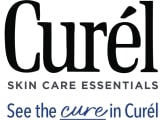Washing is the foundation of any basic skincare routine. Your skin is constantly coming into contact with dirt, pollutants and bacteria, and accumulates dead skin cells on a daily basis. Removing this buildup from the skin is critical to maintaining proper skin function.
However, if you have dry, sensitive skin, daily washing can be problematic. While the process of washing your skin may seem like common knowledge, there are still many misunderstandings and misperceptions which lead people with dry, sensitive skin to unintentionally make their situation worse. Some showering habits can damage your skin, but by using some simple tools and techniques, you can avoid dryness and irritation, and more importantly, maintain the health of your skin.
Our Favorite Shower Tips to Help Prevent Dry Skin

Choose a Gentler Skin Cleanser
There are a number of common irritants that don’t play nice with your skin. You probably wouldn’t expect a bar of soap to be on this list. Something as simple as soap should get along pretty well with your skin, right? Unfortunately, that’s not the case. Regular bar soap can be harsh on the skin.
To help explain why your soap can irritate your skin, it’s super important to understand a little bit about something you might be familiar with, the pH scale. pH measures whether things are acidic or alkaline, on a scale from 0 (very acidic) to 14 (very alkaline).
Your skin measures close to the middle of that scale. It’s actually slightly acidic (about 5.5), and that’s to help ward off bacteria. You might think soap is neutral, but it’s not. Regular bar soap is highly alkaline, around nine, or even 10 on that scale. So, your skin and bar soap are on opposite ends of the pH scale, and when acidic things, like your skin, come into contact with very alkaline things, like bar soap, there can be a reaction. This can cause your sensitive skin to become uncomfortably tight, dry and irritated.
So, it may be time to "break up," with your regular bar soap and opt for something that plays nicer with your skin. Consider a “beauty bar” labeled cleanser or a body wash. These are made differently, have closer to neutral pH levels and get along better with your skin. And, they often contain vitamins and antioxidants for additional skin health benefits. One body wash option is Curél® Itch Defense® Body Wash which is soap free and will thoroughly clean the skin without damaging the skin’s moisture barrier.
Also, make sure to read the ingredients labels carefully to determine if the cleanser you’re using contains drying properties. Avoid ingredients like sodium lauryl sulfate, triclosan, lye and Polypropylene.
Give That Cleanser Some Help
Now that you’ve chosen an appropriate skin cleanser, consider its application. Better cleansers will provide foaming action. This foaming action is essential in helping the exfoliation process. Exfoliation is the removal of the oldest dead skin cells on the outermost surface of the skin. Gentle exfoliation improves the skin’s texture and radiance and helps shed those dead skin cells that can attract bacteria.
But care should be taken when exfoliating to avoid going too deep into a layer of healthy skin cells. A common misconception is that the harder you scrub, the cleaner you are. That’s not true – you can be too rough on your skin. Many exfoliating tools like loofahs, sponges and washcloths are abrasive and can cause micro-tears in the skin when used too vigorously or frequently. They can also wash away the skin's natural moisture barrier, leading to dryness and irritation. Additionally, if loofahs and sponges are not washed or replaced often, they can become a breeding ground for microbes that are particularly bad for dry and damaged skin.
When exfoliating, remember to use a cleanser with good foaming action, and try using a non-abrasive loofa, sponge or soft cloth to help achieve that satisfying “glide” feeling. It’s possible your best tools for gently shedding that dead skin may be your own hands with products that have been made for the sole purpose of exfoliating while showering. These are known as "exfoliating cleansers," and they are formulated to buff away dead skin cells while simultaneously cleansing the skin.
The Power of Water
It’s tempting to take long, hot showers, especially during colder months; however, prolonged exposure to hot water can damage the outer layer of skin cells, preventing them from locking in moisture. This will, of course, exacerbate your dry skin.
A water temperature between 96-99F is recommended if you have dry, sensitive skin. Basically, you want the temperature to be lukewarm or around the same temperature as your skin (about 98 degrees). If you get out of the shower and your skin is red and flushed, your shower temperature is probably too high.
Also, be aware of how often you’re washing. Showering too often can irritate the skin and cause dryness. Those with sensitive skin should shower once per day to avoid irritation. If you're into fitness or merely living an active lifestyle, try to schedule your workouts before your daily shower. And on days you don’t do anything that causes you to sweat, you may consider just rinsing off in the shower instead of using any cleanser.
After Washing
So, now you are ready to change your washing routine. But the risk to your skin isn’t over just because your shower is. After showering, it’s important to remember to moisturize and dry your skin gently. Using a product like Curél® Hydra Therapy Wet Skin Moisturizer (Shop Now) before you dry off, while your skin is still wet, will help lock moisture in from the shower and repair the moisture barrier. It’s water activated, allowing the moisturizer to penetrate deeply into the skin’s surface, helping to soothe dry, sensitive skin.
And yes, there's even a proper way to dry off, one that avoids abrasions to your skin. When you’re ready to dry off, a pat-dry with a non-abrasive towel is the best method. Rubbing with a towel can disrupt your sensitive skin.
It may seem like the simplest of things, but there is definitely a correct way to wash your skin. By taking this advice, you can reduce or eliminate the skin irritation you experience.






